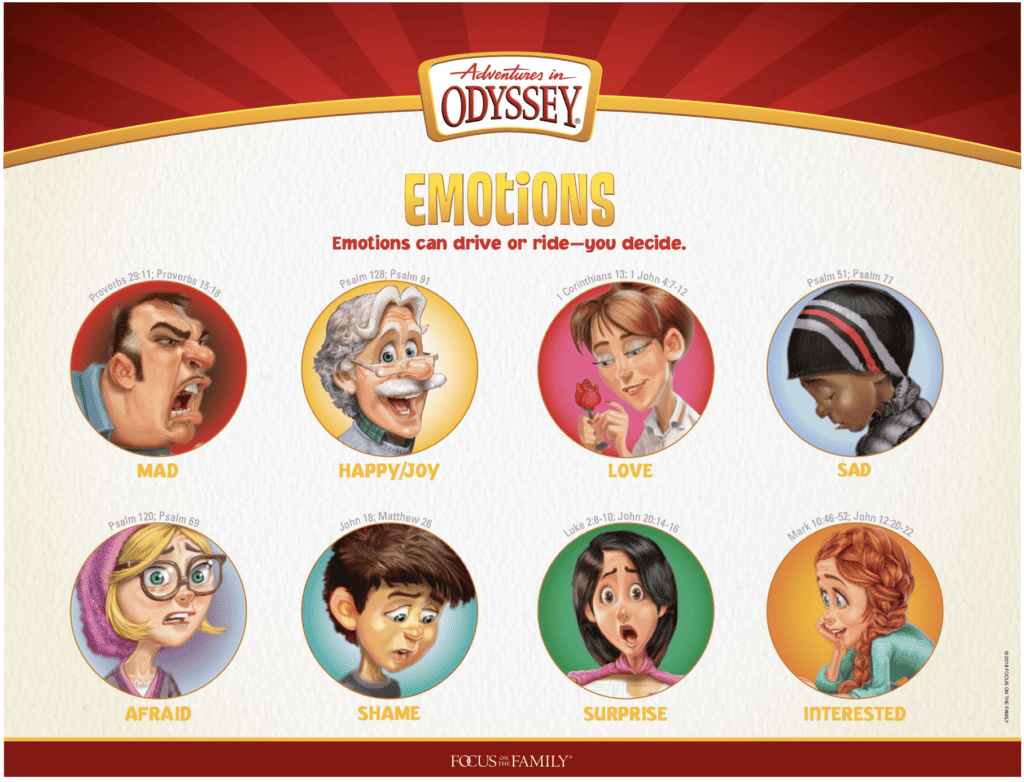
Teaching Your Kids to Read the Bible
Here’s an easy way to teach your kids to dive into God’s Word: show them how to R.E.A.D. the Bible!

When school shootings occur, our kids are likely to be afraid, mad, and confused. Remember that these are emotions created by God. They don’t need to be avoided, ignored, or silenced. However, as parents, we can direct our children towards the hope that God offers.
It’s the unthinkable. A school immediately thrust into chaos at the sound of gunfire ringing through the hallways. In a world plagued by gut-wrenching violence, school shootings present those situations parents never want to think about. Much less talk about. However, talking to kids about mass school shootings is integral to helping our kids process grief, evil, and violence at each age and stage of life.
As it is with most reports of mass violence in the news, there’s no uniform approach for parents to process these situations with their kids. Talking to your kids about school shootings requires your understanding of what they can handle. As you read, consider your child’s age, stage of life, temperament, and general awareness of events like these.
As parents, we want our kids to verbalize their fears and anxieties to us. Moreover, we want them to be able to process their fears. Eventually, we desire for them to discover hope to overcome their fears. Yet, finding hope in a culture where school shootings occur so frequently seems like a futile task.
In conversations with your kids, it’s important to remember to prioritize hope and healing, but not at the expense of listening to and processing your child’s thoughts and emotions.
As Christians, we know the source of our true hope is in Jesus. More importantly, it’s in His sacrifice to take all of the punishment for the injustices and evil of our world. Sin creates chaos, pain, and violence. During conversations with your kids, reinforce ideas about where our hope comes from. If you’ve never taken the opportunity to discuss Jesus or the gift of salvation with your kids, this might be your invitation to help your kids discover lasting hope.
There’s a debate involving what and how much parents should share with their children in these times of tragedy. Some people advocate for completely avoiding topics such as mass school shootings with your kids. Others cite the growing presence of news on social media as a reason to have these conversations early and often.
At Focus on the Family, we want to equip you to make wise, prayerful decisions to raise your kids at each age and stage of life. Understanding the developmental stages for your kids will help you navigate difficult moments in their upbringing.

With a topic like mass school shootings, it’s important for you to monitor and process your personal response to this tragedy. If you are able, process your emotions and reactions alongside your spouse before you have conversations with your kids. If not, let your children know that you want to talk about what happened, you just might need a moment to gather or collect your thoughts.
From there, you and your spouse can begin to have an intentional, but honest conversation about the situation involving a mass school shooting.
At Focus on the Family, we strongly recommend limiting or eliminating your child’s exposure to news or any social media related to events like a school shooting. Dr. Danny Huerta says that “these disturbing images can have extreme negative impacts on children under the age of 8.” As parents, you should consider protecting your kids in this age and stage from any depictions, photos, or videos of the school shooting. Instead, prioritize your child’s emotional and mental well-being by communicating that they are safe.
At this age and stage, there’s only so much your infant or toddler can grasp about a school shooting. Young kids tend to think concretely. They often place themself or their family at the center of everything.
However, even toddlers can sense when things are wrong or emotions are high. If they’ve overheard other adults talking about “guns” or “shootings,” then it might be necessary to provide some answers for your young one.
As you’ve probably already noticed, your elementary-aged children’s capacity for understanding complex topics or vocabulary can surprise you. For your elementary-aged children, situations involving school shootings will likely present a variety of responses. There will be fear, confusion, worry, and questions.
As a parent, it’s important to ask open-ended questions to your child. Then, you can get a good idea of what they know, don’t know, and their confusion. Ask questions like, “What have you heard?” or “What do you think happened?”
One-sentence stories work really well with this age range. In your conversations, provide less information rather than more to begin your investigation of what they know or don’t know. Try to give a snapshot of what happened in as few sentences or detail as possible. This will allow for your conversations to naturally evolve at a good pace for your child’s emotions.
The preteen age and stage provide the opportunity for increased depth in your conversations. This is a time where your child’s personality will start to reveal itself more and more. With that comes the discovery of a larger range of emotions, opinions, and fears.
Use your open-ended questions to investigate how much your preteen knows or doesn’t know. Don’t assume that your child is clueless about the school shooting. But also, don’t assume they know everything about the situation. Help them feel secure despite their fears. Even in this age and stage, feelings of fear and worry can cripple your preteen’s well-being. Look for cues that he or she is struggling with this news.
The teenage years contain multitudes of rapidly changing thoughts and emotions. It’s the time of life where your teen is discovering their opinions on politics, morality, ethics, and justice. Within their personal investigations, they’re starting to navigate a burgeoning collection of fears, anxieties, and worries.
When a situation like a school shooting occurs, your teen will face pressure. In our current cultural climate, there is pressure to make a statement or an alliance. There’s pressure to have each and every one of their thoughts align with their friends, teachers, or the internet. Beyond that, there’s pressure to be okay and maintain composure in front of everyone.
Teens might be looking for hypocrisy or social justice in these moments. Channel that energy towards processing the grief and tragedy of the situation. Help them think about the people hurt and impacted before everything that may be wrong with the situation.
Finally, model good behavior for your teens. Even at this age and stage, they’re watching you. You can show them how to process rather than what to think about a situation as horrifying as a school shooting. This will aid your ongoing conversations about evil and injustice within the world.
Put simply, it’s a difficult reality for teens. However, this is a prime opportunity to teach your teens to be resilient and search for hope.
Regardless of how minor or major they are, each event in our kid’s life – good, bad, or tragic – shapes them into the adult they will be. And still. God is sovereign. As time moves on, God works together each of these moments for “those who love God, all things work together for good” (Romans 8:28).
When school shootings occur, our kids are likely to be afraid, mad, and confused. Remember that these are emotions created by God. They don’t need to be avoided, ignored, or silenced. However, as parents, we can direct our children towards the hope that God offers.
In these moments, we need to pray. As a parent, there are few things more impactful than modeling prayer for your kids. In the wake of a school shooting, your family can pray. Pray for God to change people’s hearts, to eradicate the evil and injustice across the world. Pray that God would bring justice to evil on this earth, while praising Him for promising a new world where there will be no tragedy or evil. This is the lasting hope our kids need. Help them discover it one conversation at a time.